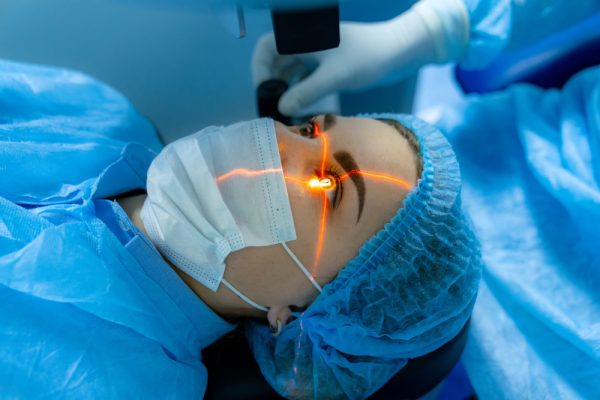
Circle Health Group was sold to PureHealth, the United Arab Emirates largest healthcare provider, in August 2023 for $1.2 billion.
Following its acquisition of BMI Healthcare in early 2020, Circle became the largest private hospital company operating in the UK. BMI Healthcare had over 50 private hospital facilities. Circle now has over 2,000 beds and 8,200 employees.
Strategy
Latest news
In August 2023, US owners Centene sold Circle Health Group to PureHealth in a deal worth $1.2bn. PureHealth is the United Arab Emirates’ largest healthcare provider, owned by a consortium that includes Abu Dhabi state holding company ADQ and Alpha Dhabi, a listed company that is part of the conglomerate International Holding Company (IHC). They are controlled by the UAE’s national security adviser, Sheikh Tahnoon bin Zayed al-Nahyan, who also chairs the emirate’s main sovereign wealth fund, the Abu Dhabi Investment Authority.
Strategy
Circle Health Group is the UK's largest national network of private hospitals with 50 hospitals and over 2,000 beds. It reports that it has access to 6,500 consultants. As well as elective surgery, it offers neurological and musculoskeletal rehabilitation services and pathway management services, GP services, and runs clinics in China. Its latest expansion in the UK was the opening of an outpatient clinic in Inverness.
Circle grew through building new hospitals, the acquisitions of Nations Healthcare and BMI Healthcare, and joint ventures. Circle Health is now positioning itself as a private integrated health care provider with a membership scheme, the MyWay scheme for those aged 18-69, that includes unlimited virtual GP appointments and face-to-face specialist consultations, scans and tests. The scheme can be part of employer benefits, the MyWay For Business scheme.
Acquisition, expansion and new investment
In mid-2020 the Competition and Mergers Authority in the UK approved the acquisition of BMI Healthcare by Circle Health; the acquisition for an undisclosed sum had been announced in December 2019. The acquisition of BMI Healthcare makes Circle Health the leading private hospital chain in the UK. BMI Healthcare had 59 healthcare facilities. Under the CMA approval, Circle had to divest its Bath hospital and its Birmingham hospital site. The Royal United Hospitals Bath Foundation Trust acquired Circle Bath in June 2021.
Documents filed on Companies House state that in January 2020 around the time of the acquisition, the US company Centene Corporation made a large investment in Circle Health via its UK subsidiary MH Services International Holdings (UK) Ltd and began its takeover of the company.
In two related deals in early 2020, 36 of BMI's hospitals were sold to North American real estate investment trusts (REITs): 30 were sold to Medical Properties Trust for £1.5 billion and six to North West Healthcare Properties Real Estate Investment Trust (Canada) for £97.8 million. The hospitals were then leased back to Circle under new leasehold agreements.
Historical strategy
From its founding up until early 2017, Circle's financial strategy was based upon investment from venture funds and it undertook two share placements, first the flotation on the Alternative Investment Market (AIM) in June 2011 and the second in June 2012.
The company’s structure was very complicated; Circle was split into the operating arm - Circle Partnership - and an investor arm - Circle Holdings. The latter company lends money to Circle Partnership to enable it to carry out the business, with Circle Partnership paying interest on the loan. In addition, since 2004 Circle has bought a considerable number of sites for building new hospitals with each acquisition being financed via the company Health Properties domiciled in Jersey.
Expansion into rehabilitation
In the company’s 2016 financial report, Circle's CEO outlined a new strategy for the company - 'rehabilitation centres'. The company already has a joint venture with the European rehabilitation specialists VAMED. The idea is to build rehabilitation centres close to large NHS hospitals and then offer the NHS use of these centres to alleviate the problems it faces with delayed discharge - patients who no longer need acute care, but who are not fit enough to go home. Circle described the partnership with VAMED as "a game-changer for the group."
The CEO noted in the company's 2016 annual report “the great growth potential here is to build dedicated rehabilitation hospitals close to large NHS trusts…….A 500-bed NHS trust could save millions of pounds a year by moving patients to dedicated rehabilitation facilities, using the latest technology, which would give them better patient outcomes."
The company's rehabilitation services are run by the subsidiary Circle Rehabilitation Ltd. The company has a rehabilitation centre in Reading, and its plan was to add a 120-bed rehabilitation centre to its planned 20-bed private hospital in Birmingham. The Competition and Mergers Authority (CMA) requested the divestment of the Birmingham hospital site following the BMI acquisition. However, Circle completed and opened its 120 bed rehabilitation facility in July 2020. The site is no longer owned by Circle, but Circle Rehabilitation Services Ltd has entered into an agreement for a sub-underlease granting it the right to operate a stand-alone rehabilitation facility within part of the building.
Circle Health Rehabilitation is interested in working in rehabilitation for several different conditions, including musculoskeletal and neurological conditions, cardiology and oncology, and Covid-19 infection. Circle's CEO Paolo Pieri reported at the LaingBuisson’s Investing in International Healthcare Services conference in late 2020 that self-pay inquiries for rehabilitation services at Circle Health’s new Birmingham facility have surpassed expectations.
Circle plans to build more centres aligned to post-acute bed shortages as demand builds and payors come to realise the extent of the financial savings alongside improved outcomes for patients. The company thinks that both the NHS and insurance companies will begin to see the value in rehabilitation beds soon.
Work for the NHS
Circle has always viewed the NHS as an opportunity to make money, although to date its success in this endeavour has been mixed. At present the company treats NHS patients via the e-referral system and is listed on framework agreements for outsourcing of elective surgery (see Contracts section).
Over the years the company has run treatment centres in Burton and Bradford, but by late 2017 Circle only had a contract for one treatment centre in Nottingham, and this was not renewed in early 2018.
Its most notable NHS contract to date was the disastrous contract for Hinchingbrooke hospital. In 2011, Circle won the contract to run the debt-ridden hospital, however the company abandoned this ten year contract in early 2015 after only two years. The hospital received a damning CQC report after the announcement by Circle that it was quitting the contract (see below for details). Circle also manages Bedfordshire's integrated musculoskeletal (MSK) service on behalf of local commissioners.
International strategy
Outside of the UK, Circle has a Chinese joint venture, Circle Harmony, announced in June 2016. Circle Harmony's first facility in Shanghai was launched in April 2019. By late 2020 it had two facilities in China, along with a clinical partnership with the Ruijin Hospital. Investors in the joint venture come from private and state investors in China and the objective is to create a network of small facilities aimed at premium end of market.
Earlier ownership strategy
At its founding, Circle was touted by as a “new model” of private healthcare in the UK with 49.9% of its equity owned by employees and providing equity in exchange for a guarantee of a share of a consultants or GPs private business. However since then Circle has moved to reduce the equity owned by its employees. First in December 2014 down to 25%, and then down to zero following the acquisition of Circle by the investment fund, Toscafund in March 2017.
Political Connections
In April 2023 it was revealed that Jemma O'Brien, the spouse of the Conservative MP Neil O'Brien, Minister for Primary Care in the Department of Health and Social Care, is GP engagement lead for Circle Health Group.
Financials
Latest financial reports on Companies House for Circle Health Holdings Ltd (company number:10543098) are for the 12 month period to 31 December 2023, which is before its acquisition by Pure Health. Revenue for 2023 was £1,130 million, up from £1,009 million in 2022. Circle reported a loss before tax of £12.4 million (2022 loss: £11.8 million) and a loss after tax for 2023 of £12.4 million.
In the past Circle had a complicated company structure. Circle Health Holdings Ltd is the name for a group of companies including nine based in the UK, including Circle Rehabilitation, three based in Jersey, including Health Properties, a property and development company, and the holdings company Circle Holdings (OS) Ltd, one based in Hong Kong, Circle Health Harmony Ltd, one in China, Shanghai Circle Harmony Hospital Ltd, and Circle Partnership Ltd based in the British Virgin Islands.
The acquisition of Circle by DMWL 849 Ltd (Toscafund) resulted in Circle withdrawing from the Alternative Investment Market (AIM). DMWL 849 Ltd changed its name to Circle Health Holdings Ltd in June 2017. Circle had listed on AIM following a limited public offering in June 2011.
BMI Healthcare
BMI healthcare's last financial report was for the 12 month period ending 31 March 2020, which can be found on Companies House (02164270).
The total revenue for the 12 month period was £863.7 million. Gross profit was £278.4 million. The company reported that administration expenses were £216.3 million. Total loss for the period was £53.9 million. Revenue from NHS work was £241.1 million for the 12 month period, or almost 30% of total revenue.
Investors
Current ownership
In January 2024, the agreement for Circle Health to be acquired by Pure Health Holdings LLC was finalised and Circle Health became a subsidiary of Pure Health UK Bidco Limited. The ultimate parent is the The Emirate Of Abu Dhabi.
Previous ownership
Circle was owned by the US company Centene Corporation. Ownership is via the Centene UK subsidiary, MH Services International, and the acquisition process took place over a period of time beginning in early 2020.
More details of the Centene investment were outlined in MH Services International Holdings (UK) Ltd's accounts filed on Companies House. In January 2020 Centene Corporation loaned MH Services International Holdings (UK) ltd the funds for an investment in Circle Health Holdings. The investment meant that MH Services International (UK) Ltd had a total voting interest of 40% in Circle Health Holdings and by extension in its recent acquisition of BMI Healthcare. Centene's investment in Circle via MH Services International Holdings (UK) Ltd was valued at £67.3 million. The accounts of MH Services International Holdings (UK) Ltd noted that the investment gives the Group significant influence, but not control over Circle Health. However, in July 2021 MH Services International increased its stake in Circle to over 75% and became the controlling party. Therefore the ultimate parent company for Circle is now Centene Corporation.
In a related deal in January 2020, the US company Medical Properties Trust, Inc. entered into definitive agreements to acquire the leases of 30 of BMI's hospitals, that were part of the Hospitals Topco Co Ltd, in the UK for an aggregate purchase price of approximately £1.5 billion, or approximately $2.0 billion. The facilities are leased under long-term inflation protected net leases to affiliates of BMI Healthcare. The hospitals will be leased under a master lease structure guaranteed by Circle with an initial fixed term of 30 years, two 5-year extension options, and annual rent escalators linked to UK consumer price inflation.
A further six hospitals in the BMI portfolio were sold in a separate deal completed in February 2020 to North West Healthcare Properties Real Estate Investment Trust (Canada) in a deal worth £97.8 million. Circle now leases these properties from this company.
Earlier investment
In March 2017 the investment company Toscafund put in a bid to buy 100% of Circle. The eventual cost was £69.224 million. The investment fund already owned 27% of Circle shares. The bid was put forward by DMWL 849 Ltd, a company set up by Tosca Penta Funds in order to buy Circle. This acquisition means that Circle no longer has any ownership by its employees. DMWL 849 Ltd changed its name to Circle Health Holdings Ltd in June 2017.
Toscafund is a financial services group based in London, engaged in asset management and private equity. It was founded in 2000 by Martin Hughes, its Chief Executive. Toscafund runs investment funds based in a number of jurisdictions, including the Cayman Islands and Bermuda.
When Circle was set up the idea was for the company to be at least partially owned by its employees. Until December 2014, Circle Holdings owned 50.1% of Circle Health, with the remainder held by Circle Partnership, owned by Circle Health’s doctors and employees. But the company then reorganised itself so that employees owned just 25% of Circle Holdings, which wrote off Circle Health’s debt. Circle Partnership is registered in the British Virgin Islands as Circle Partnership Benefits Trust.
Prior to the DMWL 849 Ltd acquisition, Circle Health was owned 75% by Circle Holdings, which in turn was in the hands of large private equity companies.
Contracts
Circle runs its NHS contracts, outside of elective surgery, via its Circle Integrated Care subsidiary.
NHS elective surgery
Circle treats NHS patients via the e-referral system. The company is listed on the outsourcing framework by NHS Shared Business Services.
Covid-19 contracts
In March 2020, Circle Health was part of the deal with the government for using all its premises and staff for NHS patients during the Covid-19 pandemic. NHS England block booked almost the entirety of the private hospital sector’s services, facilities and nearly 20,000 clinical staff for the foreseeable future to help cope with the surge of covid-19 patients. The agreement only covers England and added around 8,000 hospital beds, nearly 1,200 more ventilators, more than 10,000 nurses, 700 doctors and 8,000 other clinical staff. This deal, which means the NHS is paying all operating costs for the hospitals, has been a lifeline for the company, as the lockdown meant that no private work was possible.
In June 2020, a £5 billion deal to extend the March deal to help the NHS clear the backlog of work was agreed by NHS England and the private hospital companies, however this was blocked by the Treasury. The Treasury did not believe the deal represented good value for money and that the evidence was not substantial. The block-contract basis of contracts with private providers continued, however, as NHS England prepared a new four-year framework contract for increasing capacity. In June 2021, Circle Health was listed as one of the companies awarded work under the four-year NHS Increasing Capacity contract worth a collective £10 bn.
In October 2020, the HSJ reported that Circle was the recipient of the largest contract for staff and capacity from NHS England, according to a series of contract award notices, however the time period of 2020 this covered is unclear. The contract with Circle (which now includes BMI) amounted to £346.6 million.
These block contracts have been criticised after leaks revealed that the capacity paid for by NHS England at companies such as Circle/BMI was very under-utilised. HSJ reported that two-thirds of the private sector capacity that was block-purchased by the NHS at a cost of an estimated £400 million a month went unused by the NHS over the summer, despite long waits for operations.
In January 2022, Circle Healthcare became one of ten independent providers which signed a contract to provide extra capacity for the NHS under a three-month deal if Omicron leads to unsustainable levels of hospitalisations or staff absences. The deal, agreed by Sajid Javid, the health secretary, will mean the providers are paid to be on standby, with the NHS ordered to pay the private hospitals up to £270m, even though they may not treat any NHS patients in return. Leaked letters showed that Amanda Pritchard, head of NHS England, raised grave doubts over the contract, which instructed the NHS to pay private hospitals £75m to £90m a month from NHS England funds for the next three months. The deal could mean the NHS has to pay independent hospitals up to £525m if they did end up treating any NHS patients.
The agreement also includes Practice Plus Group, Nuffield Health, Spire Healthcare, Ramsay Health Care UK, Healthcare Management Trust, One Healthcare, Horder Healthcare, Aspen Healthcare and KIMS Hospital.
Bedfordshire MSK contract
In August 2013 Circle Partnership in conjunction with Pennine MSK Partnership, National Rheumatoid Arthritis Society, Arthritis Care, Horizon Health Choices, and the Luton and Dunstable NHS Foundation Trust, won a five year contract with Bedfordshire CCG for an integrated musculoskeletal pathway. The contract was worth about £120 million and began in January 2014. It was extended by five years in 2019 and is due to end in March 2024, with an option to extend to March 2025. Circle was still running this contract in early 2024.
North Hampshire MSK service
Circle as Circle Integrated Care, together with local community and hospital providers delivers the musculoskeletal pathway across North Hampshire.
Rushcliffe MSK service
The Circle Rushcliffe MSK service for the NHS has centres in West Bridgeford and Nottingham.
Wolverhampton dermatology service
Circle as Circle Integrated Care runs a dermatology service from four surgeries in Wolverhampton.
Greenwich MSK contract
In August 2016 Circle was selected by Greenwich CCG as the successful bidder to run an integrated musculoskeletal service (MSK). The five year contract includes the possibility of two one year extensions, and will see Circle run a Prime Provider model, which will integrate all MSK services. The contract is valued at £73.7m. In November 2016, however, the finalisation of the contract was put on hold following a public outcry. The contract will not be signed until after an assessment of its impact on Lewisham & Greenwich NHS Trust. Campaigners fear that changes to the MSK services the Trust is paid to deliver may threaten its ability to provide other services, including A&E services at both hospitals.
In March 2017, management consultants Price Waterhouse Coopers (PwC) published a report on the impact of the MSK contract, which found the Circle contract would have a massively negative affect on the Trust. Lewisham and Greenwich Trust stands to lose up to £6.6m of revenue over five years, according to the report, unless Circle Health contracts it to deliver community based services and “other orthopaedic activity”.
It would be possible for the Trust to mitigate the financial loss from the Circle contract, if Circle used the trust’s resources to deliver community care and if Circle “repatriated other orthopaedic activity”, meaning orthopaedic surgery. However, the contract with Circle contained “no contractual commitment to do this at present”. This absence of a guarantee, noted the report, “poses a risk to the trust which would be exacerbated if further activity loss was to occur”.
The PwC report noted that the Trust's MSK services would be under threat if Circle were to contract with another provider because the loss of activity would make Queen Elizabeth Hospital “the smallest site delivering both trauma and orthopaedic services in the country which may impact the delivery of quality and safe care”.
The report also noted that there would be an issue with the Trust's ability to train doctors, due to the reduction in activity.
According to a leaked document seen by the HSJ, as a result of the PwC report, Circle has signed a tripartite agreement to agree to all the mitigations proposed by the incumbent Lewisham and Greenwich Trust.
The mitigations include a specified “minimum activity level” for the trust for five year contract term. They also include a termination clause that says Circle’s contract, awarded by Greenwich Clinical Commissioning Group, will end if planned activity levels in orthopaedics at the trust fall below a certain level.
Previous Contracts
Rushcliffe Trauma and Orthopaedic Community Triage
In March 2017 a contract was published that showed a £348,000 contract had been awarded to Circle. The goal of this contract was to reduce the number of unnecessary hospital referrals and increase the number of patients managed in primary care and community settings.
Nottingham Treatment Centre
The Nottingham NHS Treatment Centre contract with the Department of Health has now come to an end. This contract was extremely important for the financial stability of the company, particularly following the loss of the contracts in Burton and Bradford in 2011. In March 2018, however Circle pulled out of a bid for a renewal of this contract for another three years worth £150 million. The company withdrew because in its view the amount of money on offer was not sufficient to deliver services on a “sustainable basis” at the treatment centre. The value of the contract had been reduced to £50 million per year from £67 million per year.
Circle threatened the CCG commissioners with legal action over the contract and as a result of the threat, in early May 2018, the commissioners of the Nottingham contract, Rushcliffe CCG, allowed Circle to continue with the contract for a further year. Following a new procurement process, Rushcliffe CCG awarded the contract to Nottingham University Hospitals NHS Trust (NUH). In January 2019, Circle launched a second legal challenge against the CCG claiming the Trust can’t possibly treat NHS patients for less money, and that bringing the contract back in-house would be “unrealistic” and “not in patients’ interests”. In May 2019, Circle lost this legal action against Rushcliffe CCG and NUH was free to begin the five-year contract to run Nottingham Treatment Centre. Circle felt this decision was "flawed" and "unfair".
Hinchingbrooke Hospital
The now defunct Hinchingbrooke hospital contract, began in November 2011 when Circle signed a ten year contract to run Hinchingbrooke Hospital, with management beginning in February 2012. Under the agreement, the staff and assets remained part of the NHS. At the time Hinchingbrooke hospital had a debt of approximately £39 million, which Circle needed to eliminate if it was to make a profit from the contract. Hinchingbrooke was reported to have an annual turnover of £90 million. Media reports noted that Circle could make £31 million out of the contract over the ten year period.
Circle was only required to cover any losses incurred by the trust over that period beginning in February 2012 up to the first £5 million. If the trust incurs further losses whilst managed by Circle, either party could terminate the deal, requiring Circle to pay a £2 million termination fee to Hinchingbrooke. This meant that the company’s potential losses were capped at £7 million, or approximately 0.7% of the NHS funds it will manage over the term of the contract. Any surpluses made at Hinchingbrooke would be split between Circle and the NHS.
Concerns
Care Quality
The Hinchingbrooke contract was a disaster for Circle in both financial and reputational terms. A report by the National Audit Office in September 2012, noted that Circle had already missed its own financial target for the Hinchingbrooke contract, generating a deficit of £4 million by September 2012, £2 million behind where Circle said it would be. Circle admitted that this meant that it would end up bearing £3.5 million in losses in 2012, which it would fund. The National Audit Office warned in its report that "Circle's projected savings of £311 million over 10 years are unprecedented as a percentage of annual turnover in the NHS... Circle's bid did not fully specify how it would achieve these savings."
To try and make the contract financially viable, Circle needed to make big savings at the hospital and this led to a drastic reduction in care quality. Savings were made at the expense of staff, with between 270 and 300 jobs being cut and several wards lying empty. The hospital fell from joint-highest in the area in a patient satisfaction survey to nineteenth out of 46 hospitals trusts across the NHS Midlands and East region in August 2012. This is a “friends and family test” in which patients are asked to say whether they would recommend the trust to friends and family.
In early 2015 as Circle announced that it was terminating the contract to run Hinchingbrooke, the CQC released a report on the hospital. The report rated the hospital as inadequate and the hospital trust was put into special measures. The Chief Inspector of Hospitals stated "Our inspection highlighted a number of serious concerns surrounding staffing and risks to patient safety particularly in the A&E department and medical care. There were substantial and frequent staff shortages in the A&E department. There were a number of other areas of concern, some of which related to the way in which the trust is led and run."
The hospital is now run by Hinchingbrooke Health Care NHS Trust and is now rated “good” overall by the CQC.
BMI
BMI was one of the UK's leading private hospital chains, with over 50 hospitals. Its strategy for development in the UK was combined private healthcare patients via the insurance market and self-pay, with a considerable amount of work for the NHS. The company ran into financial difficulties and as a result was a target for acquisition.
Part of BMI’s strategy was a separation of property ownership from operating company, which ultimately led to significant financial problems. In 2006, the company signed leases for 35 hospitals, this was at the height of the market and the annual rent rise was 2.5% per year. This ownership structure has meant that over the years, the company’s rent bill has been around 20% of its UK revenues, and a major drain on the company’s profitability.
In 2006 GHG (the parent company) was sold to a consortium formed of 3 principal shareholders: Netcare ltd; Apax partners; and London & Regional Properties. The ratio of shareholders among these three groups was: 53.7% - 32.1% - 7.5%. Meanwhile the difference of 6.7% was held by the management and senior staff.
In the years running up to its acquisition by Circle Health, BMI Healthcare's financial circumstances deteriorated further. An FT article in March 2018 noted that lease re-negotiations between Netcare and the major property owner had become “acrimonious”. The property arm of BMI has debt of more than £1.5 billion.
In March 2018, Netcare, BMI’s majority shareholder (57%), announced the sale of its share in BMI. The reasons for this included a fall in NHS and private medical insurance work and increasing rents. BMI leases many of its hospitals and Netcare was unable to renegotiate favourable leases on 35 of its 59 properties; Netcare was seeking significant rent reductions.
At the time of Circle Health's acquisition of BMI, a separate transaction involved the US corporation Medical Properties Trust Inc acquiring the leases on 30 hospitals leased and managed by BMI Healthcare. MPT already owns one hospital that is leased and managed by BMI Healthcare and two hospitals leased and managed by Circle Health.
BMI's strategy for development in the UK was combined private healthcare patients via the insurance market and self-pay, its work for the NHS.
Political Connections
Prior to BMI's takeover by Circle, its parent company GHG had close ties with the Conservatives. The company’s Chairman Sir Peter Gershon was recruited by the Conservative party just before the election in 2010 as one of David Cameron's independent efficiency experts who identified the £12 billion in spending savings an incoming Conservative government could make.
The conservative party and its leader at the time, David Cameron, have also received large donations from London & Regional Properties - a lead shareholder for GHG. Overall a total of £134,930 was donated directly to the party. Over a million has also been personally donated by Paul A Beecroft - who was a director of Apax, another lead shareholder.









